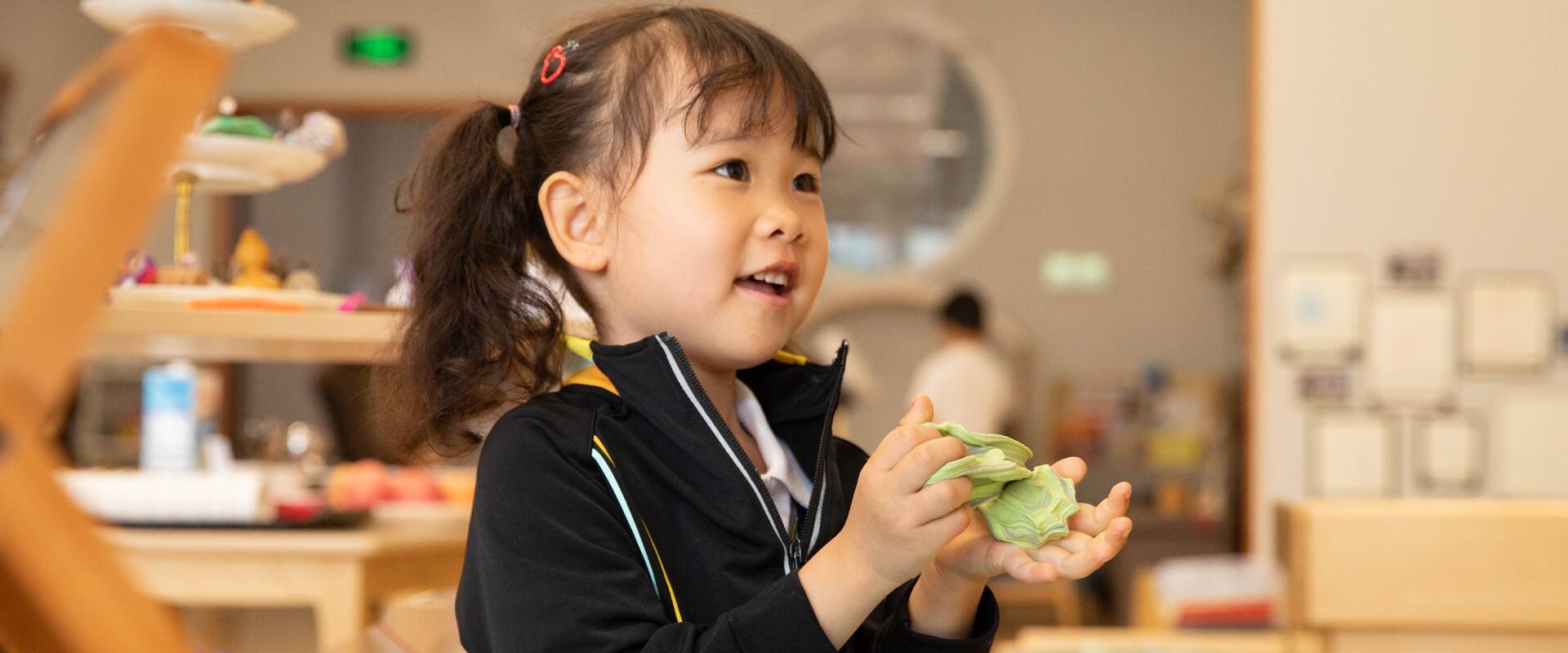
Transition by definition is ‘the process or a period of changing from one state or condition to another: transition of something to something (noun)’. We will all go through many different transitions and changes throughout our lifetime, some may be exciting, and others may be daunting. While children and young people are in our care, it is one of our many privileges to help guide them through their emotions, ensuring they have the tools to understand the changes.
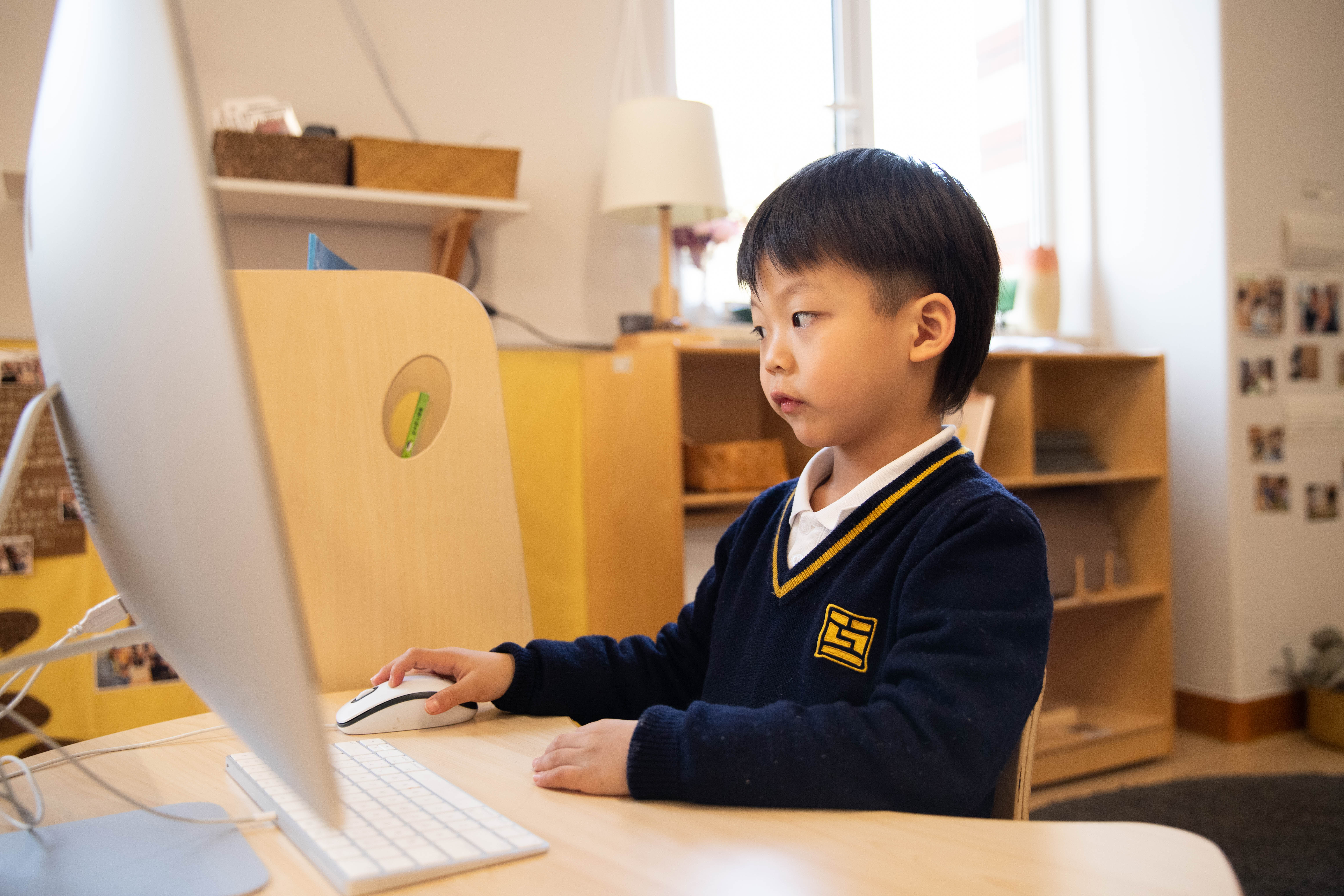
Many significant transitions take place throughout a child’s time in Nursery:
Starting Nursery in EY1; for many children, this is their first time away from their family and home
Between year groups and beginning in a new class, e.g. EY2-EY3, EY3-EY4
At the end of their Nursery journey when starting primary school.
Many transitions take place day-to-day, such as, but not limited to:
Each morning when travelling from home to start their school day
When moving from indoor to outdoor discovery time
Lunchtime to naptime
Speaking English and Chinese
At the end of the day when leaving school to go home
Try to think back to a significant transition in your life, perhaps the first time your parents took you to Nursery or when you moved from primary school to secondary school. What emotions, thoughts, and feelings do you remember? These are often very big emotions that can be confusing and difficult for children to understand and articulate. They need the skills required to self-regulate.
Children need to be happy and feel safe and secure to learn most effectively. This includes understanding and talking about how they are feeling. Therefore, smooth transitions are vital; to be handled with great care and planning. The most effective practice promotes a strong partnership with parents, families and the community so that all adults involved with children can work together to secure the best outcomes for them. At Huili Nursery Hangzhou, we aim for transitions to be an embedded continual process woven into our bilingual curriculum and throughout all aspects of Nursery life, not limited to stand-alone activities that take place at the end of each academic year before children change classes or school.
“Reading and writing float on a sea of talk”
The above quote is from Educationalist James Britton, in 1970. His research concluded that talk, or oracy, is the foundation of literacy. The vast range of vocabulary that children are exposed to through sharing books and talking about stories enables them to develop the skills required to read and write and speak and listen in a way that lets them communicate effectively and make sense of the world around them. When children can make sense of their world, they can regulate their emotions, gain confidence, express their ideas and feelings and efficiently interact. Therefore, we need to expose children to a language-rich environment and intentionally plan for the talk. One strategy we use is ‘Talk for Writing’, the progression of literacy skills using this strategy is summarised below:
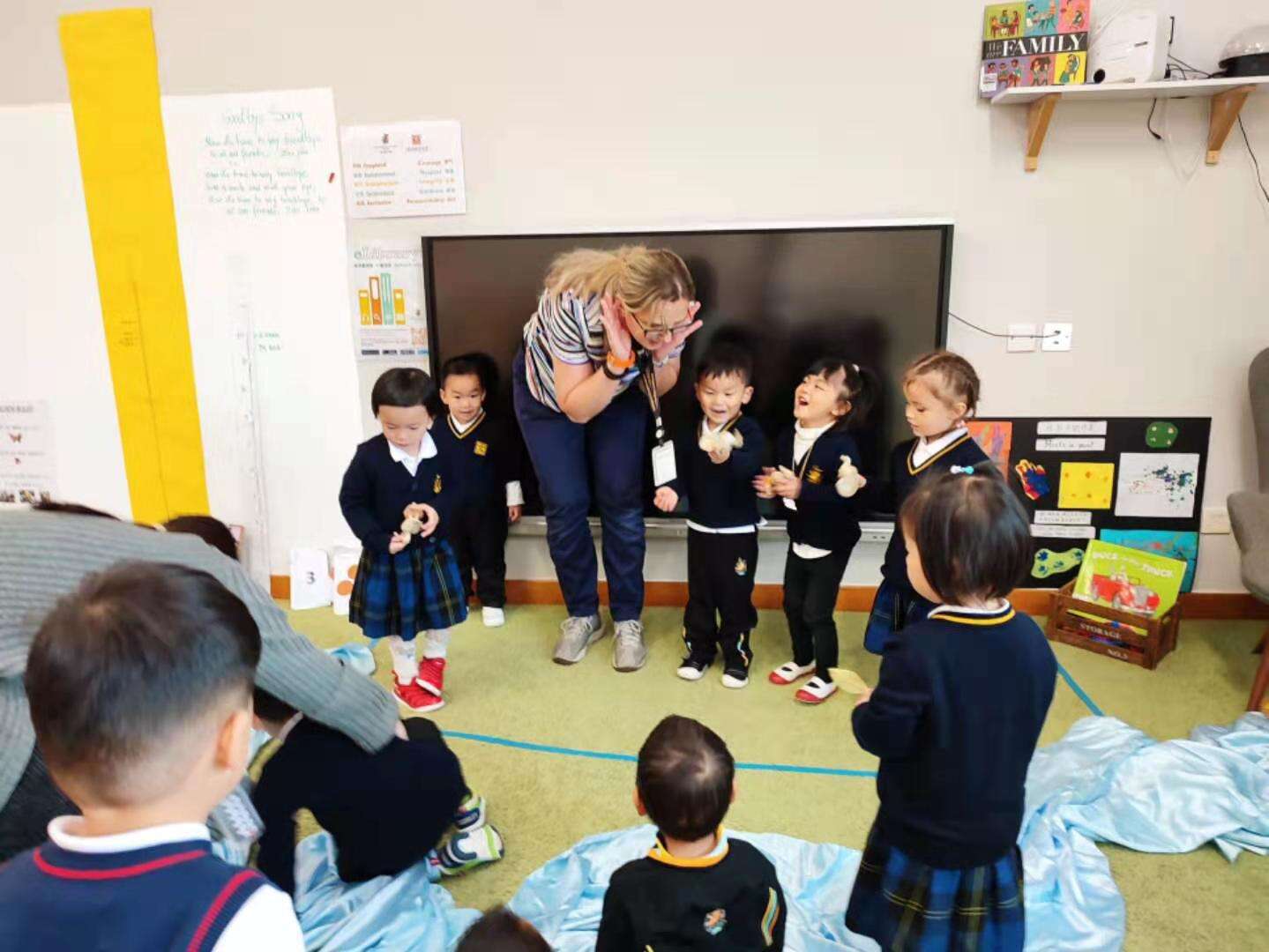
Children begin in EY1 learning essential vocabulary through daily nursery rhymes, songs and stories. Playing with their voices, repeating songs and adding actions help children remember new vocabulary and express themselves clearly and in a way that others will understand.
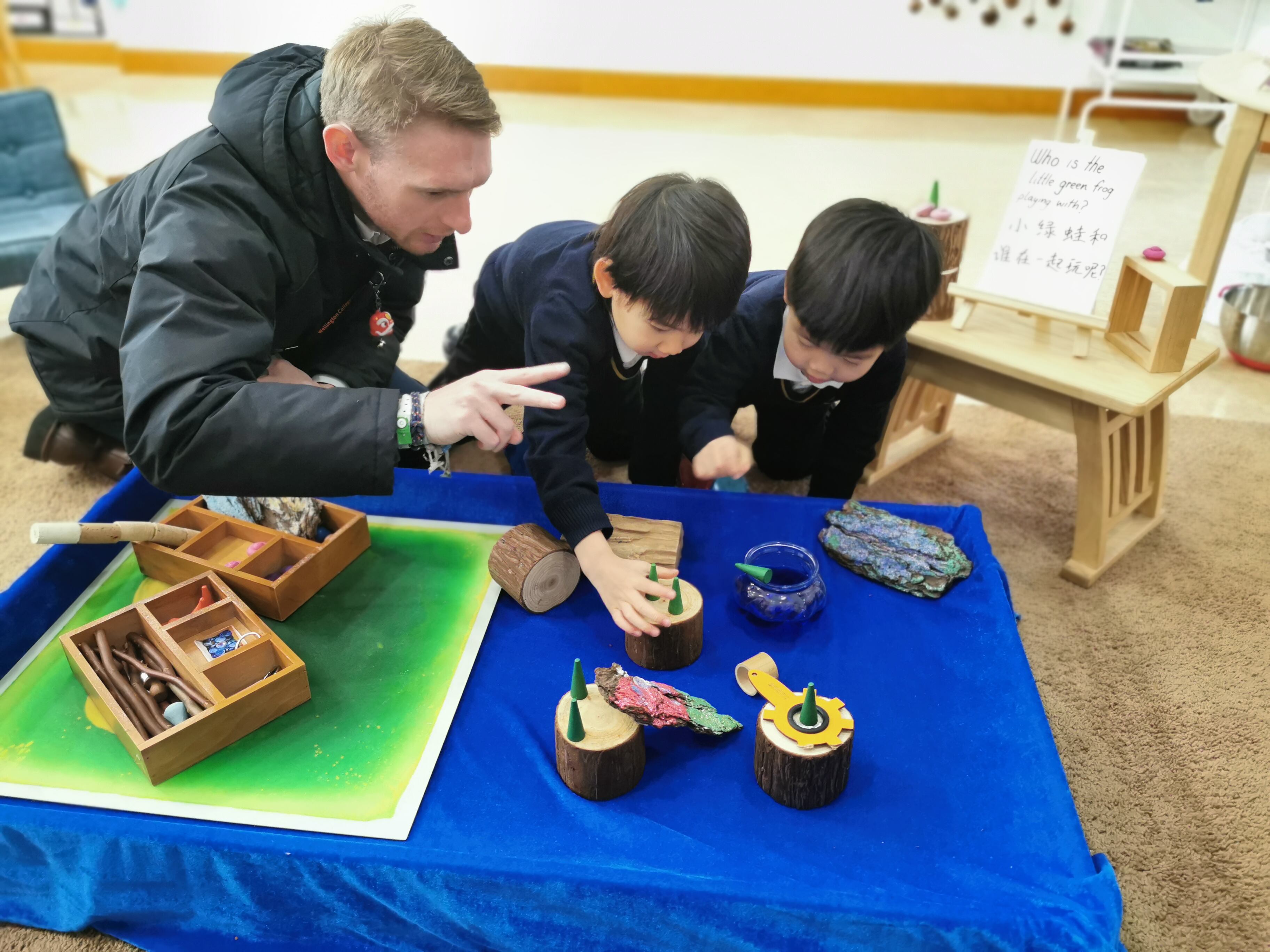
In EY2, children explore nursery rhymes and stories in more depth, talk about key events in stories, follow story maps, and imitate the stories and rhymes through role play and drama activities.
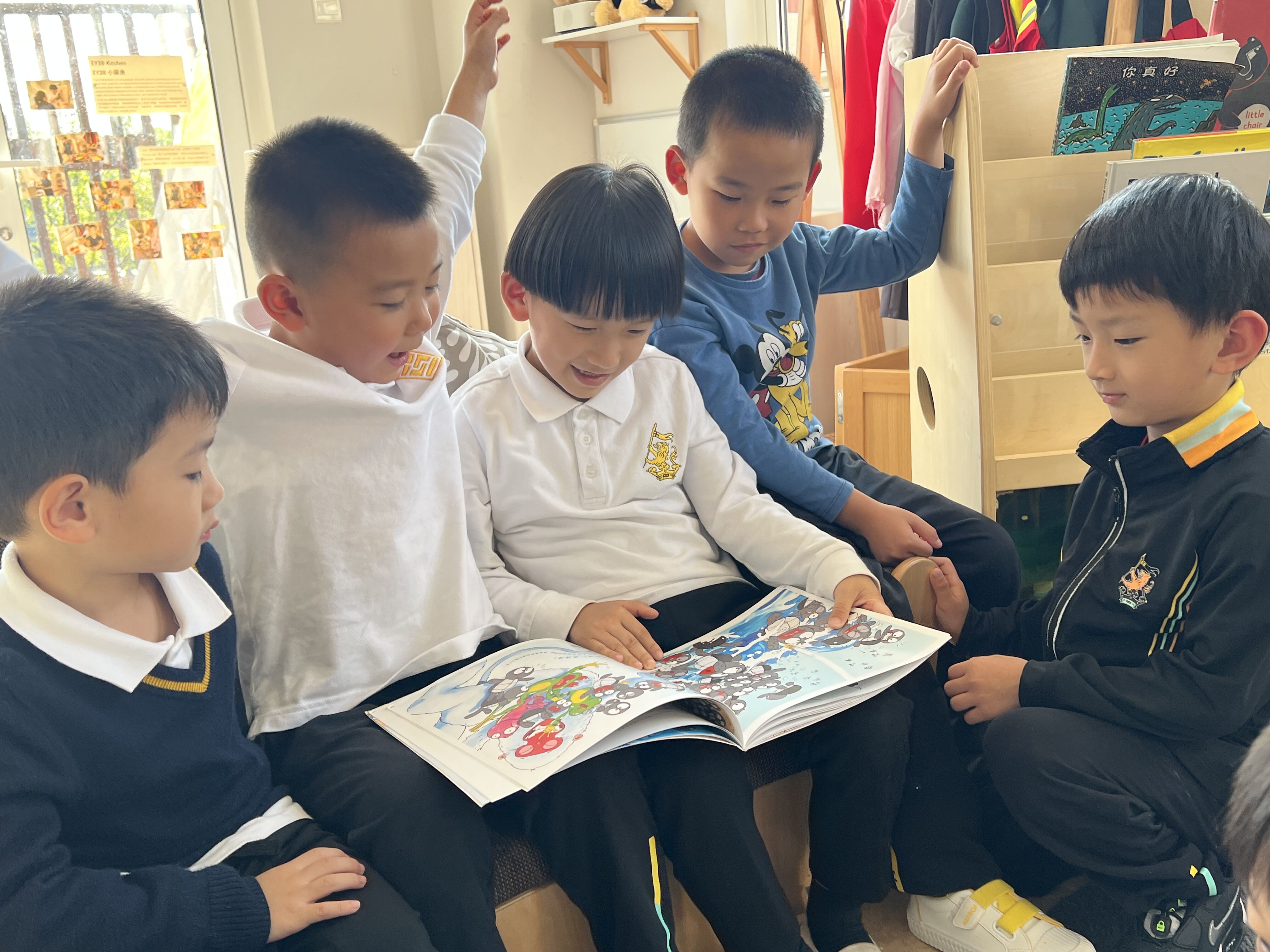
As children transition to EY3, they are more familiar with various texts and have expanded their vocabulary. They can create class story maps, innovating their stories by changing characters, objects and settings. Through role-play and drama, they can express how characters feel and why.
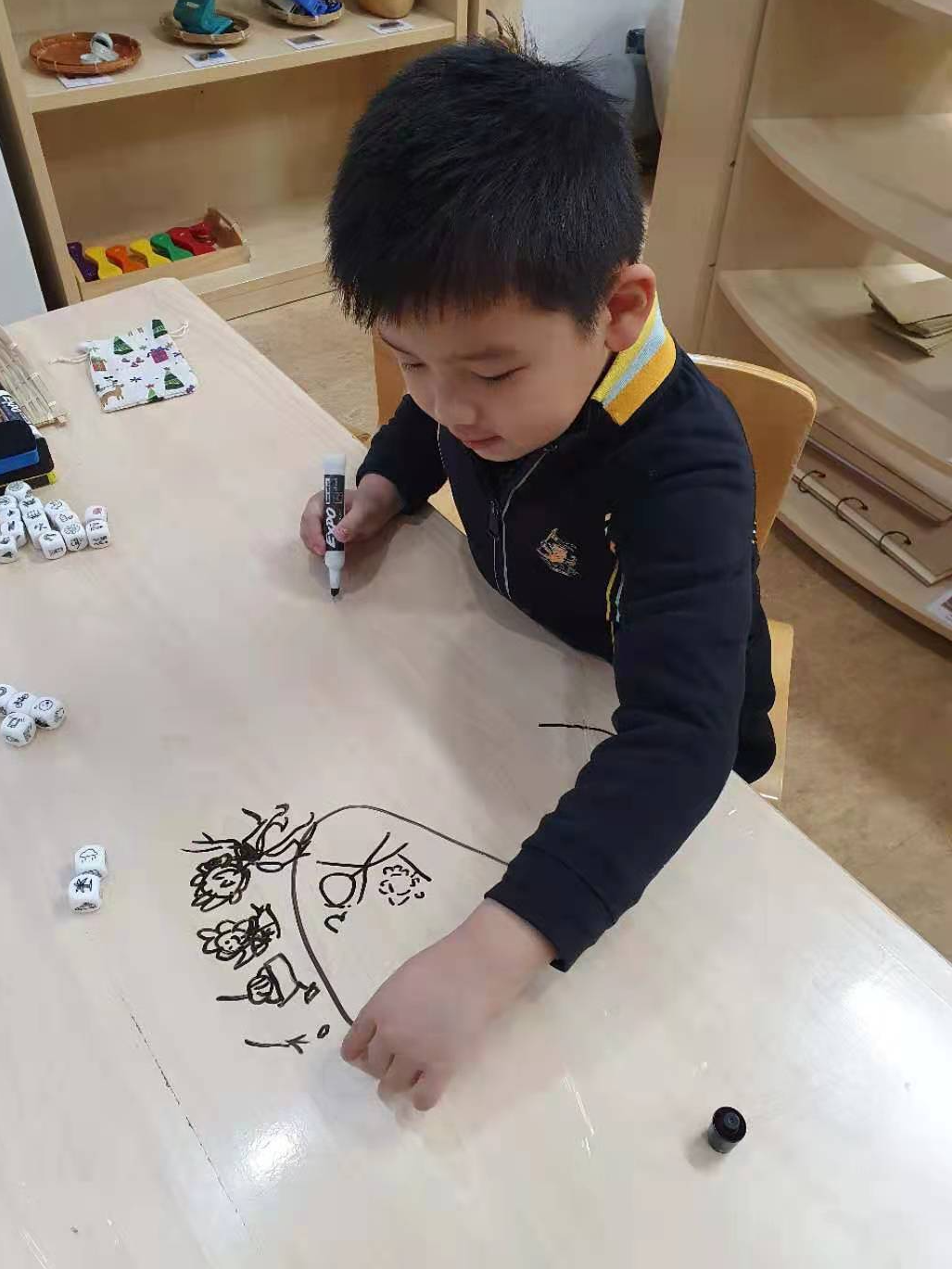
When children reach EY4, they have firm foundations and sound knowledge of the structure of different stories and can draw their independent story maps, inventing their own stories.
Developing talk and oracy skills through ‘Talk for Writing’ is just one example of how the curriculum transitions at each stage and lays the foundations for future building blocks, making connections with the wellbeing of all and ensuring smooth transitions for our children at Huili Nursery Hangzhou.
Our developing talk allows children to process and verbalise the emotional feelings associated with the transition.